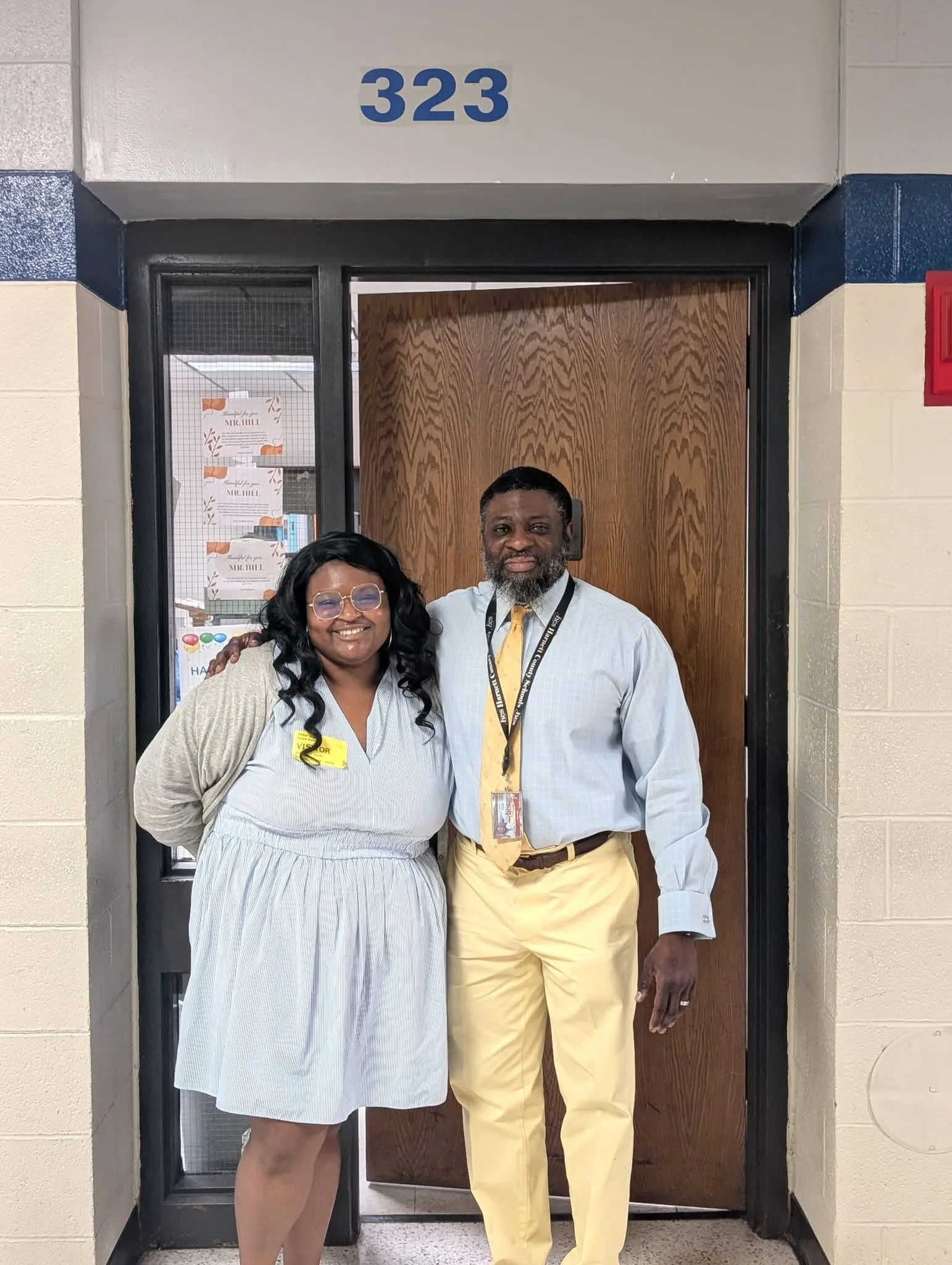Today marks the anniversary of the Wilmington massacre of 1898 — when white supremacists violently overthrew Wilmington’s elected, multiracial government and destroyed a thriving Black community. Today in America, it’s more important than ever that students learn the truth about moments from our past that still shape our present. That’s why educators like Mr. Guy Hill, an NCAE member from Harnett County, are so vital to building a more just future.
Ten years after leaving Triton High School in Erwin, NC, I walked back through its doors — not as a student, but as someone shaped by one teacher’s lasting impact. The hallways looked different, the faces had changed, even the front office door had moved. But Mr. Guy Hill was still there, doing what he’s always done: igniting young minds and helping students see beyond the walls of the classroom.
“Public schools are the main medium where students gain reading comprehension, history, critical thinking, and problem-solving skills,” Mr. Hill told me. “If we don’t support them, we’re not just failing schools — we’re failing society.”
I was lucky to have Mr. Hill for both Ninth Grade Honors English and Eleventh Grade AP English III. He was the only Black teacher I had until college, when I became an African American and Diaspora Studies minor at our shared alma mater, UNC-Chapel Hill. In his classroom, he created space for difficult but transformative conversations about race, identity, and power — long before those words became part of our national vocabulary.
“I’ve always tried to help students understand the connections between Africa and African American culture and history,” he said. “When I teach world literature, we read works like Things Fall Apart or A Long Walk to Water because they remind students that African history is part of everyone’s story.”
Looking back, Mr. Hill gave us more than lessons in literature — he gave us space. High school is an in-between time: you’re part child, part almost-adult, expected to be quiet until suddenly you’re expected to know who you are. Mr. Hill didn’t rush that process. He listened. He saw us. He made room not only for our analysis of books, but for our growing sense of ourselves. Because of him, I learned that my voice matters. My experiences matter.
I still remember a spring afternoon in eleventh grade when a class discussion about slavery grew intense. This was before the death of Mike Brown, before Trump, before DEI became a national flashpoint. I sat quietly, passing a note back and forth with the only other Black student in the class. But even in that silence, something shifted. That day planted a seed — one that would later give me the courage to speak up and claim my Blackness with pride.
For years, Mr. Hill has held space for his students, for honest conversations, and for the history and legacy of the African Diaspora through his English classes. Now, he’s taking that work even further as he begins teaching AP African American Studies.
“When I heard the College Board was creating an AP African American Studies course, I knew I needed to be part of it,” he said. “I’ve been teaching African literature and culture for years. This class lets students go deeper — to learn not just about Africa and the transatlantic slave trade, but also the cultural roots that connect us through music, art, food, and language.”
He sees the course not as a niche offering, but as essential education for everyone.
Watch Mr. Hill explain what AP African American Studies means to him — and what he hopes students will take from the class:
“This class is open to every student,” he explained. “I want them to understand themselves — and to understand other cultures more, too.”
“I’m looking forward to teaching about the Wilmington Massacre of 1898,” he told me. “It’s one of the most important and least discussed events in North Carolina history. More people need to know how it happened, why it happened, and what it still means.”
As we mark this anniversary, Mr. Hill reminds us that public schools are where we confront our history, challenge our assumptions, and build the kind of future we want for ourselves. In a time when truth itself is under attack, teachers like Mr. Hill are helping students find their voices and write a new chapter — one rooted in honesty, courage, and hope.
